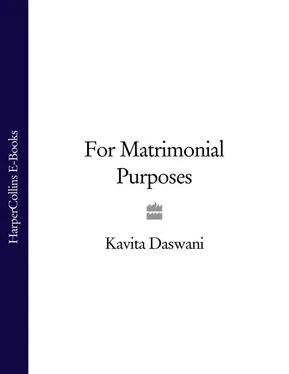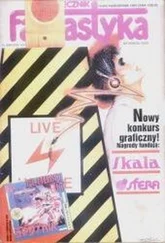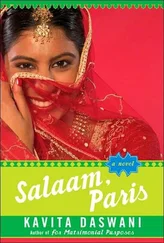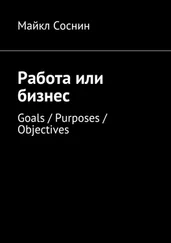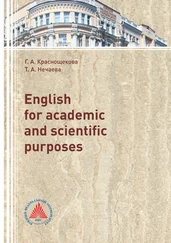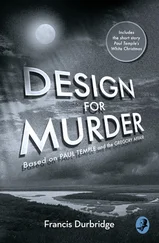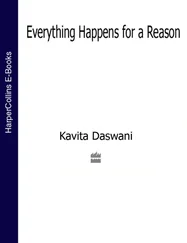But first I saw my father stepping outside alone, so I followed him.
He was looking over the metal gates surrounding the temple, and out on to the sea. He seemed wistful, perhaps remembering all the family weddings he had attended here, in this very temple – three in the past year alone – and how at each one he had prayed that the next time he came it would be to give his own daughter away.
He closed his eyes, took a deep breath. When he opened them, he saw me walking towards him, negotiating my way on ridiculously high-heeled shoes that he knew I had spent way too much money on.
‘Fresh air,’ he said, enjoying a rare moment of calm in what had been a wedding-crazed week. ‘All is well. God is great,’ he sighed, pensive and calm.
I paused, then said, ‘It stinks out here. Daddy, this is so not fresh air. You’d have a better chance of finding it standing on the corner of Madison Avenue and Fifty-Seventh. I can see your lungs blackening! Come on, let’s go back in,’ I said, hoping to interrupt his regretful thoughts about me, if that was indeed what preoccupied him.
Back in the temple hall, my mother, beaming, rejoined us.
‘Anju, beti , he’s asked for you. That boy. Maharaj Girdhar said he likes you and wants to meet you. What do you think?’
Part of me, I had to concede, was flattered. It was not every day that a man would look at me across a crowded, overheated room, and decide right off that he wanted to marry me. The last time it happened, I’d been with my girlfriends in a seedy salsa club on Eighth Avenue and Thirtieth Street. There, a man in a polyester pinstriped suit and a handlebar moustache told me he wanted to marry me, right before he threw up in a potted plant. That, pitifully, had been my last proposal.
And that was basically what this was. As loose an expression of interest as it seemed, this was a proposal, no doubt about it.
There was, however, the whole issue of first impressions. The last man I’d dated wore Prada. No gold, no gum. He’d been cool. And he had neat eyebrows. But there certainly had been no proposal forthcoming.
But, here and now, my mother didn’t want to hear about bad dress sense. That was an unacceptable reason to say no.
‘What shall I tell Maharaj?’ she asked me again.
‘Mum,’ I whispered, ‘he looks like he should be on some America’s Most Wanted list.’
‘Anju, be serious!’
‘OK, OK. Where’s he from?’
‘Accra.’
‘As in Accra, Ghana, West Africa?’ I exclaimed. ‘What the hell am I going to do in Accra?’
‘Don’t say hell here, beti. People will hear you. They’ll think you have no manners.’
Mr Monobrow was a vague distant relative of the groom, here to find a wife. He was from a well-to-do family that had made its money in grocery stores, my mother told me.
‘ Beti , Maharaj says he’s a very good boy. Very good family. Plenty of money. At least meet him, no?’
‘I’m sure he’s perfectly nice, Mum, but really, I can’t imagine living in Accra. I mean, aren’t there military coups there every five minutes? And he just seems, you know, a bit kind of uninteresting. I can’t see that we’d have anything in common.’
My mother gave me that familiar look: the super-sized frustration-annoyance combo, with a side order of impatience thrown in.
‘Anju, really, sometimes I think you have been in Umrica too long.’ She sighed, and returned to the priest, who was waiting for an answer. She went to tell him they would think about it. In Indian-parent parlance, that meant she needed a day or two to convince me.
Mr Monobrow, in the meantime, had sidled off to the buffet table, with a short, plump woman who was probably his mother. I went off and found Namrata, Nina’s eighteen-year-old sister, who had been given gift-holding duty.
‘Hey, sweetie, what’s up?’ I asked.
‘Nothing, didi. Just so tired. My feet are really paining me,’ Namrata replied. She was toting a Singapore Duty Free Stores plastic bag filled with pretty envelopes, little silk purses and the odd velvet box, all containing cash, gold coins and jewellery.
‘How are you, didi ? Having a good time?’ she asked.
Namrata was, like her sister, wholesome and good-natured. She reminded me of Britney Spears in her pre-sex siren days, all perky and popular, but minus the cropped tops and mini-skirts. Like her newly married sister, Namrata too could sing – from Hindi film songs to religious bhajan s. She had learnt how to pickle lemons and fry papad s perfectly. And with her soft, fair, plump complexion, she was every Indian male’s dream-wife. She looked a vision tonight, in a floaty lilac embroidered gagara-choli. She was being primed; her mother was already on the lookout for son-in-law number two. But Namrata was also bright and funny, not a cream-puff like so many of the other girls in this room, so I ran the Monobrow-dilemma by her.
‘You see that guy over there?’ I motioned to him. ‘He told Maharaj Girdhar, who told Mummy, that he’s interested in me. But he’s from Accra. What am I going to do in Accra?’
Namrata glanced over at him, and a knowing smile spread across her pretty face.
‘You know what it is, right, didi ? In your baby-pink sari, you look like a marshmallow. All soft and sweet and fluffy and nothing inside but air. That’s what he would want in a wife, don’t you think?’
Two days later, I spent the morning with my mother at Bhuleshwar market. If there were such a thing as an urban purgatory, this would be it. Strings of small shops lined a road that wasn’t quite a road. Cars were stalled every two feet by a dead cow, a sleeping homeless person or hawkers selling food. They heaved around worn wooden carts filled with plastic buckets and stainless steel forks, weaving their way in and out of the hundreds of people crammed throughout this smelly, fly-infested labyrinth.
We embarked from the quiet and cool sanity of our white Ambassador car and joined the approximately seventeen million other pedestrians. The only way to really ‘do’ Bhuleshwar was to walk it. The stench of cow dung in the heat was overwhelming; sweaty people pressed against me. Scrawny men with paan -stained teeth heckled and cat-called as we stopped intermittently at a stall here and there to shop. My mother chastised me for wearing embroidered capri pants and a slightly cropped white Martin Margiela T-shirt. ‘You should have put on a cotton salwar kameez, beti. Now they all know you are a foreigner.’
The purchases, however, were worth the horrors. I bought thick copper bangles, packets of bindis and little painted clay dishes that Indian families use to hold devotional flames. I’d give those to my best friend Sheryl for her Tribeca loft where they would look great as trinket boxes. We selected a bale of woollen shawls, and countless yards of coloured silks that Marion, Erin, Kris and the other girls from work would fashion into cool cushion covers or summery sarong skirts. I found mirrored slippers that sold at Scoop for two hundred dollars (’What nonsense!’ my mother screeched when I mentioned this), and which sold here for the equivalent of four dollars. See, there was much to return to Bombay for!
We were home in time for lunch, before the sun became too hatefully hot.
I grew up in this apartment on Warden Road, a nice residential part of the city not far from the sea. The cool of the marble in our entry corridor felt delicious against my bare feet. The apartment took up the whole of the top floor in a seven-storey building. It had once been two three-bedroomed suites but now had been combined into one rather oddly laid-out but grand six-bedroomed home. My grandfather had had the foresight to buy both units when he fled with his young family from Pakistan to Bombay around the time of the partition in 1947. He’d been able to sell his land in our family’s original homeland of Hyderabad Sind, and came across the border on trains piled with other refugees, his pockets filled with old gold coins collected over the decades. With the help of relatives, he’d bought property, set up a jewellery business and raised his family safely away from the chaos over the border.
Читать дальше
